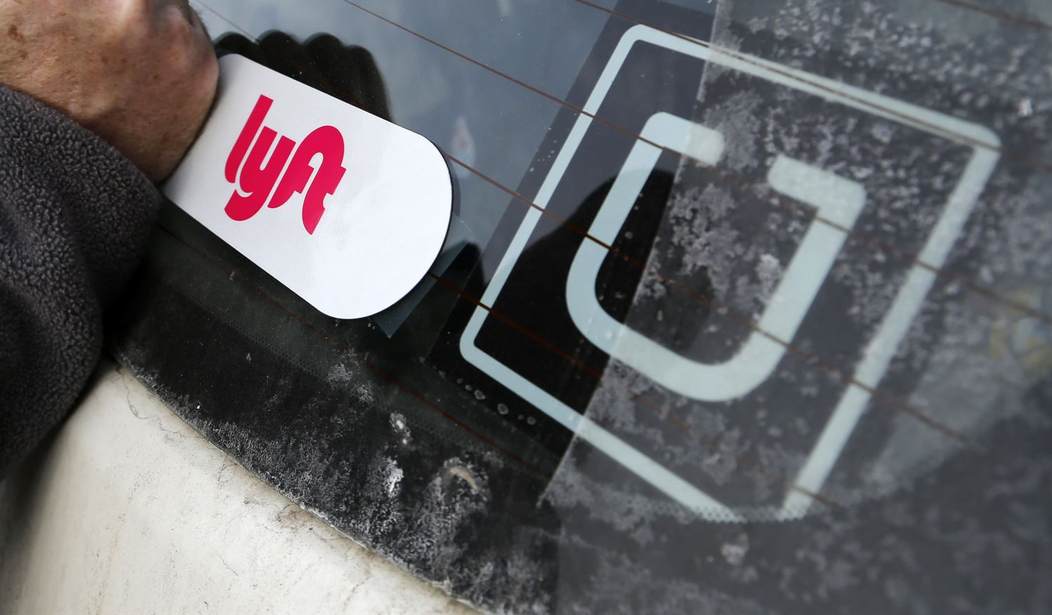According to Uber’s policy, both drivers and passengers are supposed to be unarmed during rides. Of course, there’s no way for the company to ensure that its policy is being followed, at least proactively, and as a result drivers have become increasingly targeted by carjackers and robbers who are looking for an easy and unarmed victim.
The latest example of this comes from Chicago, where a 19-year old has been arrested and charged with the attempted carjacking of an Uber driver on Monday. Prosecutors say that while Bicarious Young is only facing charges in one incident at the moment, they believe he was responsible for at least three other attacks on Uber drivers that same day.
Young and an accomplice were captured on video as they ordered take-out food from a Thai restaurant on the 2900 block of North Sawyer and then climbed into an Uber that they summoned under the user name “Lil Split,” prosecutors said.
As they approached their destination, Young and the other man allegedly tazed the 56-year-old driver on both sides of his body and ordered him out of the car. The accomplice pushed the man to the ground before driving away with his black Toyota Highlander.
Young would later admit to crashing the Highlander when he spilled his Thai food and became distracted while driving it, according to prosecutors.
Police in suburban Harvey arrested Young at a gas station Tuesday after they saw him getting out of a car that was taken in another hijacking, prosecutors said. Another man who was with him escaped.
According to prosecutors, Young was “adjudicated delinquent” just two years ago in an armed robbery case, but was sentenced as a juvenile.
Carjackings are skyrocketing in Chicago this year, with more than 750 incidents recorded through early July, and as WGN-TV reported earlier this summer, an increasing number of perpetrators are juveniles.
WGN Investigates found 84 juveniles had been charged in carjackings through mid-June. That’s more than the number of adults charged this year.
“I just stared at him in the eye and into the barrel of the gun and I’m pleading with him ‘please, no,” Alyssa Blanchard said.
The CPS teacher was carjacked last year outside her South Side home. Authorities have charged a 13-year-old boy with the crime.
“I could have died. Literally, I should not be standing here talking to you right now,” Blanchard said.
Chicago police declined to comment for this story, although publicly police officials have blamed the increase on a court system that they say goes too easy on juveniles.
Children who commit carjackings face far less serious consequences than adults.
Despite this, juvenile justice experts say that’s for good reason, citing studies showing locking up kids can do more harm than good in the long term.
“Every young person who is engaged in harmful behavior has the potential to stop doing it in the future and in fact, most young people who commit serious felony crimes including violent crime will grow up into adults who don’t continue in that behavior,” Stephanie Kollmann said.
Yes, people have the ability to change, and the juvenile justice system is supposed to be about rehabilitation more than incarceration. The problem is that there’s little evidence that Illinois’ juvenile justice system is actually rehabilitating young offenders. As a 2019 study found:
While the number of incarcerated juveniles in Illinois has consistently decreased over the years, the recidivism rate remains high. To better understand the extent of Illinois youth recidivism, researchers measured three-year rearrest and reincarceration rates among a sample of youth released from state juvenile correctional facilities. Over the three-year period post-release from the juvenile state correctional facilities, 87 percent of youth were rearrested, 55 percent were recommitted to a state juvenile correctional facility, and 54 percent were committed to an adult correctional facility.
Bicarious Young is likely going to end up as one of the 54% of juvenile offenders who end up being sent to prison within three years of his release from a juvenile correctional facility. He’s already among the 87% of youth who’ve been re-arrested within three years,
Young’s alleged carjacking spree is not only evidence that Uber (and fellow rideshare company Lyft) should scrap their “no-guns allowed” policy for drivers and recognize their need to be able to act in self-defense, but that Chicago’s criminal justice system is seriously screwed up and in need of a complete overhaul. Sadly, I expect the status quo to remain in place for both the private companies and the government institutions that are failing to keep Chicagoans safe and denying them their ability to protect themselves.









Join the conversation as a VIP Member